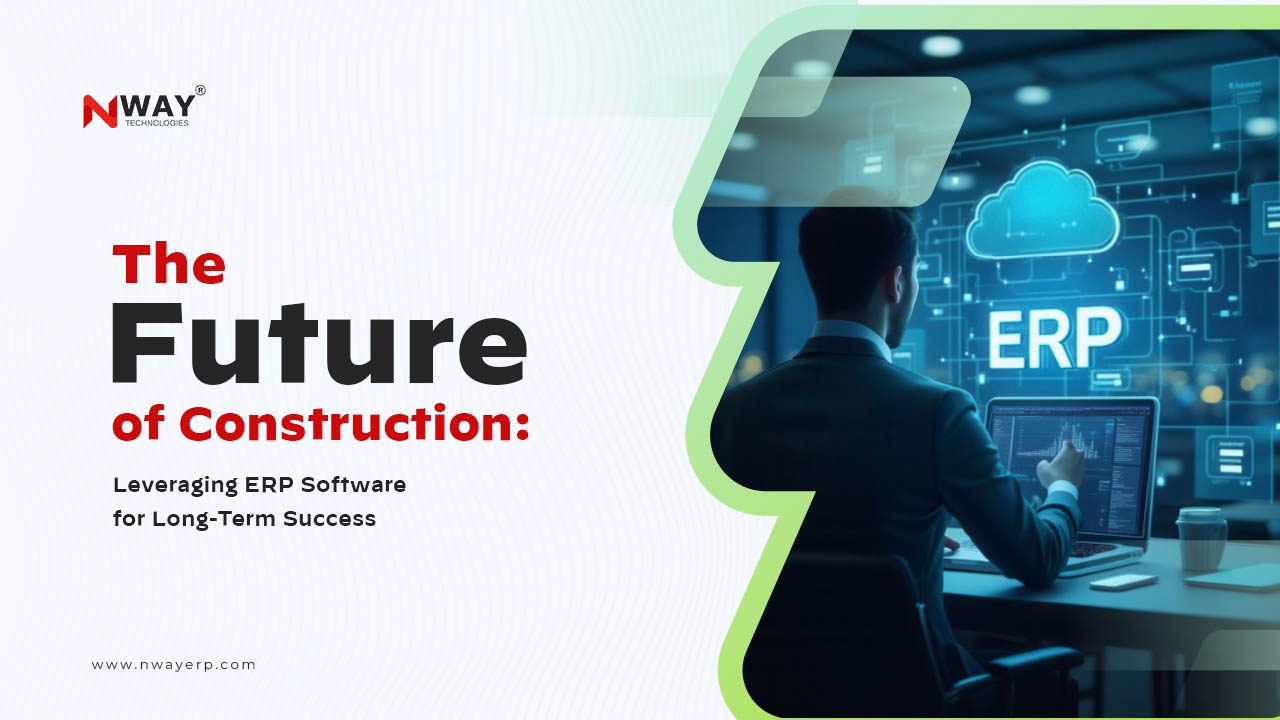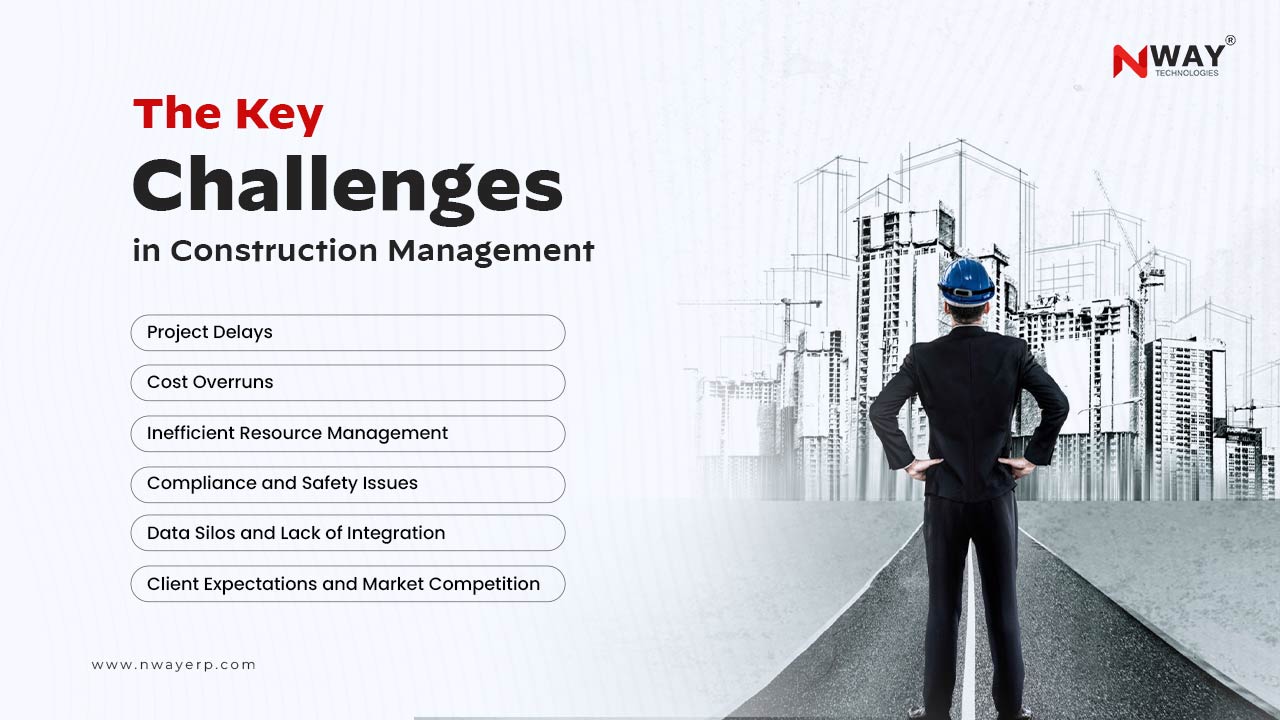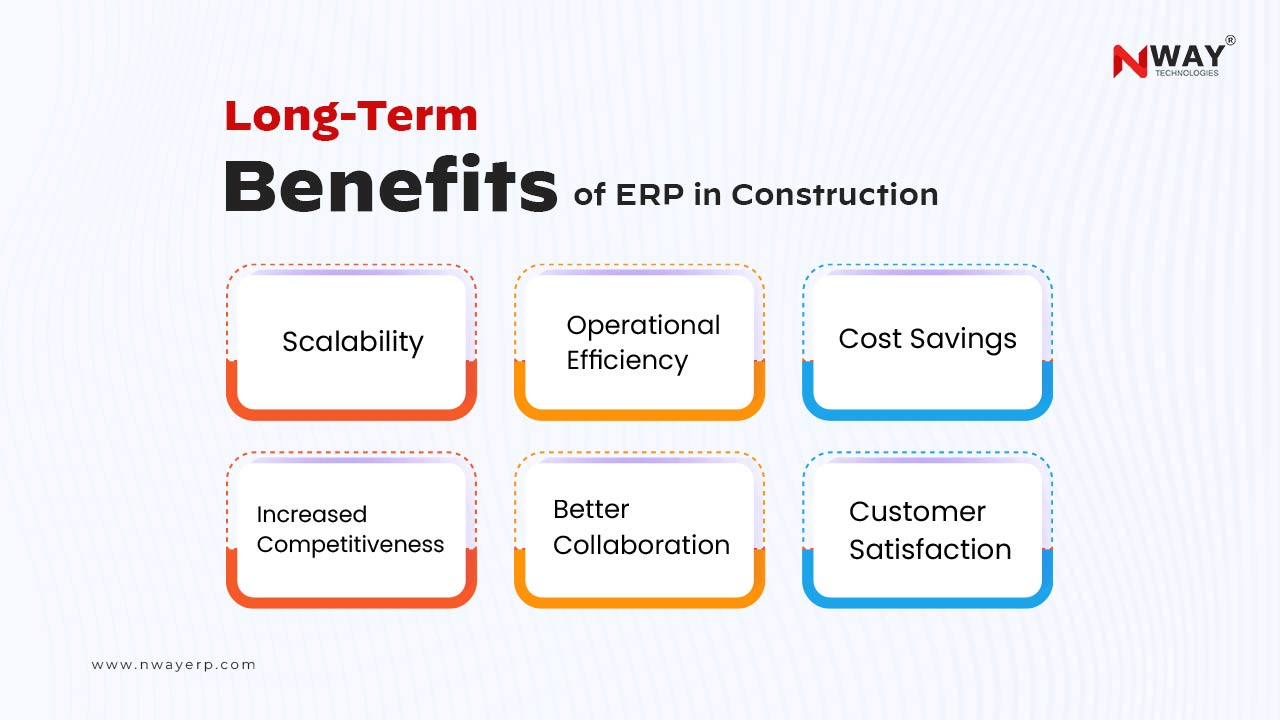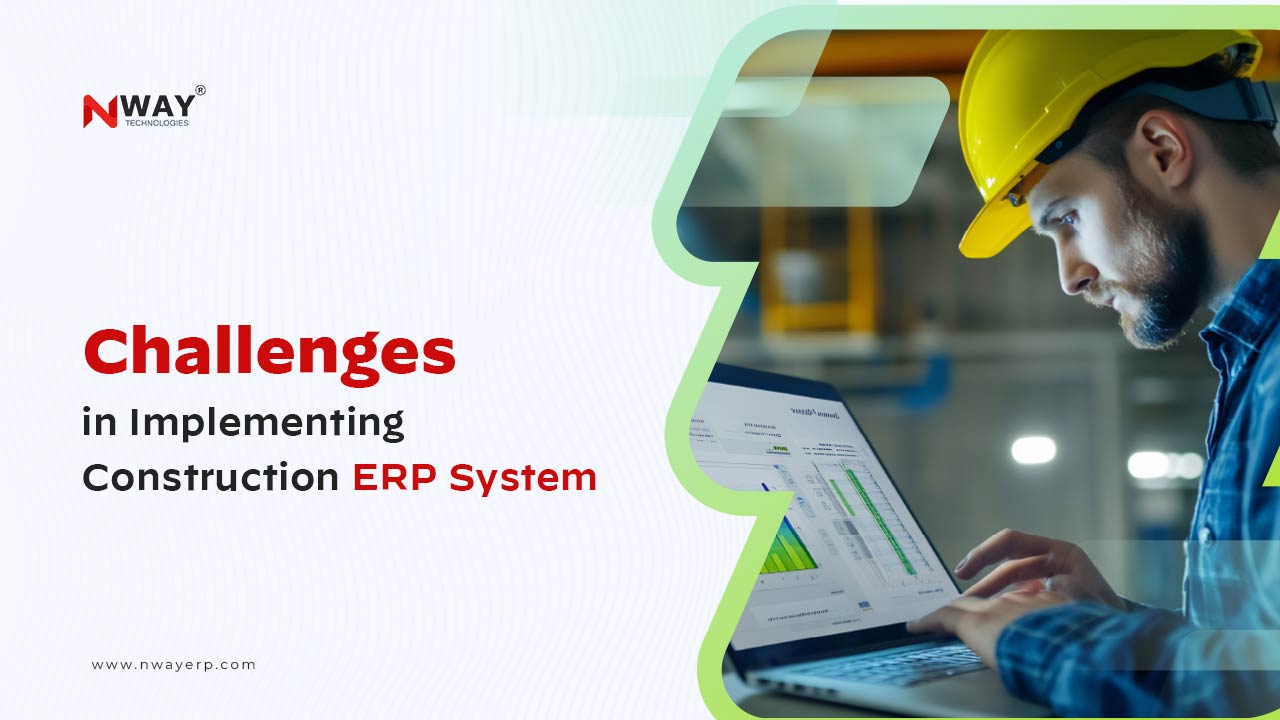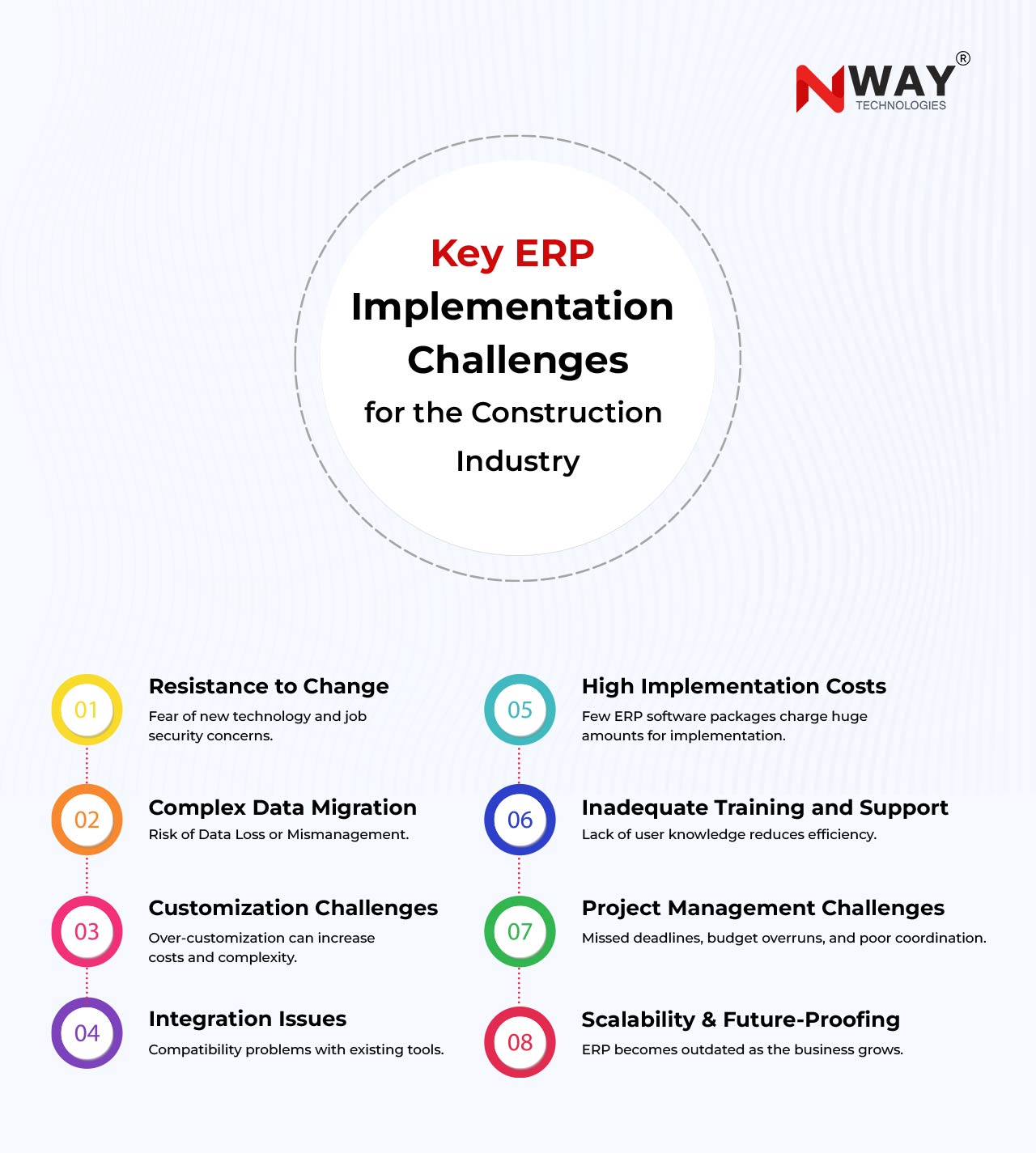Enterprise Resource Planning (ERP) software has become the backbone of construction businesses, helping organizations streamline their operations, improve efficiency, and enhance decision-making. However, implementing an ERP system is just the beginning. To ensure continuous and seamless operations and adapt to evolving business needs, ongoing ERP support is essential. Without proper support, companies risk inefficiencies, downtime, and operational disruptions.
The blog will explore why continuous ERP support is crucial and how it benefits businesses, especially in the construction industry.
Table of Contents:
- What is an ERP System?
- Key Challenges
- How ERP Solves These Challenges?
- Benefits of ERP in Construction
- Implementation of ERP in Construction
- Conclusion
What is an ERP System?
Enterprise Resource Planning (ERP) is a comprehensive software that integrates core business functions such as finance, human resources, supply chain management, project planning, and customer relationship management. ERP for the construction industry provides a centralized database, real-time analytics, and efficient workflows to improve decision-making and operational efficiency. It also helps manage project timelines, material procurement, workforce allocation, compliance requirements, and financial reporting, reducing redundancies and minimizing errors.
Scaling the Key Challenges in Construction
The construction industry is vast and involves various operations in multiple departments. It faces several hurdles that hinder smooth operations and long-term growth. Some of the major challenges include:
01. Project Delays
Inaccurate planning, poor coordination, and any unforeseen circumstances lead to delays in project completion.
02. Cost Overruns
Budget mismanagement, material usage, and unexpected expenses cause delays to exceed their allocated budgets.
03. Inefficient Resource Management
Labor, equipment, and materials must be managed effectively to prevent shortages or excesses.
04. Compliance and Safety Issues
Construction projects must adhere to regulatory requirements and ensure worker safety.
05. Data Silos and Lack of Integration
Disjointed systems can lead to inefficiencies and errors, hampering productivity.
06. Client Expectations and Market Competition
Companies need to meet client expectations while staying competitive in an evolving industry.
How ERP Solves These Challenges?
ERP software is designed to tackle these pain points by offering integrated solutions:
01. Enhanced Project Management
An ERP for Construction Industry provides real-time visibility into project timelines, helping managers track progress and mitigate delays.
02. Financial Control and Budgeting
Cost estimation, expense tracking, and financial forecasting tools within ERP ensure better budget management.
03. Resource Optimization
Optimized scheduling and inventory management prevent overstocking or resource shortages.
04. Regulatory Compliance & Safety Management
ERP ensures adherence to legal requirements through built-in compliance tracking and risk management features.
05. Data Integration and Centralized Information
By eliminating data silos, ERP fosters seamless collaboration across departments.
06. Improved Decision-Making
Advanced reporting and analytics provide insights that help stakeholders make informed choices.
Long-Term Benefits of ERP in Construction
Investing in ERP for Construction Industry helps deliver long-term advantages that can propel a construction company toward sustainable growth and profitability:
Some of the key benefits are:
01. Scalability
ERP systems grow with your business, accommodating expanding operations and increasing workloads.
02. Operational Efficiency
Optimized workflows and minimized manual interventions enhancing productivity.
03. Cost Savings
Efficient budgeting and resource allocation lead to reduced waste and optimized expenses.
04. Increased Competitiveness
Companies using ERP can make data-driven decisions, improving market positioning.
05. Better Collaboration
Unified data fosters coordination among stakeholders, including contractors, suppliers, and clients.
06. Customer Satisfaction
Effective project management and transparency enhance client relationships and trust.
Experience the power of an integrated ERP software tailored for the construction industry. See how it can help you achieve long-term success.
Effective Implementation of ERP in Construction
While Construction Management Software offers extensive benefits, its implementation requires strategic planning to maximize success. Some of its best practices are:
01. Access Business Needs
Conduct a thorough evaluation of current challenges and identify what features are required.
02. Choose the Right ERP Solution
Choose an ERP software that aligns with your company’s size, operations, and future goals.
03. Engage Key Stakeholders
Include project managers, engineers, financial teams, and IT staff in the decision-making process.
04. Ensure Proper Training
Employees can receive adequate training to improve their performance and maximize their capabilities.
05. Seamless Data Migration
Transitioning from existing systems should be planned carefully to avoid data loss or discrepancies.
06. Monitor and Optimize
Post-implementation, continuously evaluate system performance and refine processes as needed.
Also, read our latest blog on 7 key ERP implementation challenges and risks.
Conclusion
The future of the construction Industry lies in digital transformation, and ERP software is at the heart of this evolution. By integrating all critical functions into a unified platform, an ERP for the Construction Industry can ensure long-term success. From improving efficiency and reducing costs to enhancing compliance and project execution, an ERP can be a game-changer for construction companies. It can help embrace sustained growth, increased profitability, and a competitive edge in the dynamic construction industry. So how are you managing your construction operations and what are your long-term goals? If you are thinking of leveraging ERP software for success, NWAY can be the one, contact us now, and one of our experts will help you understand more.
